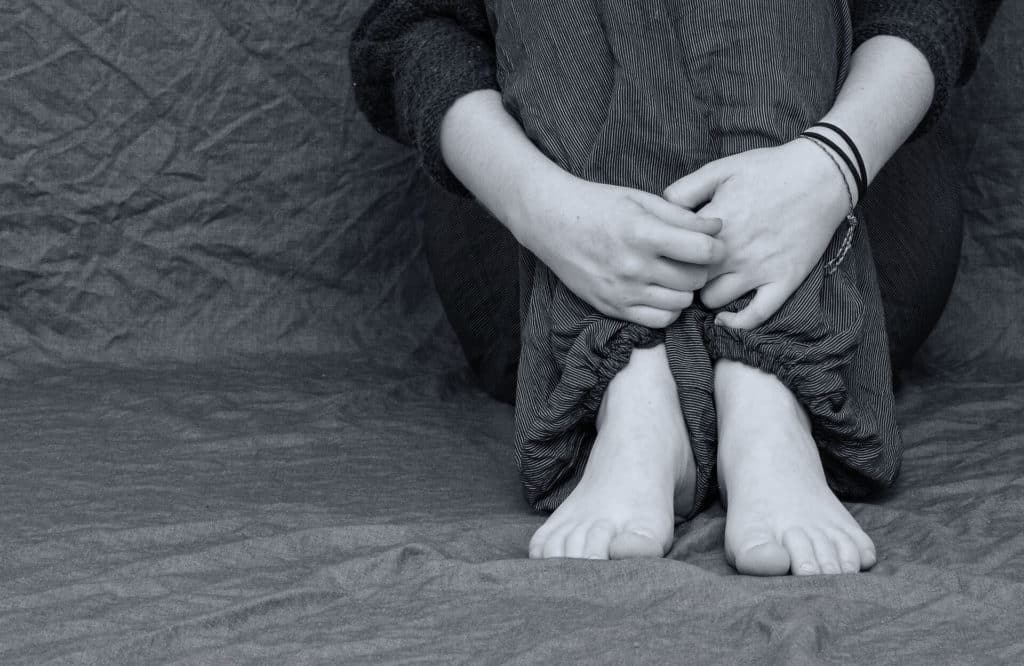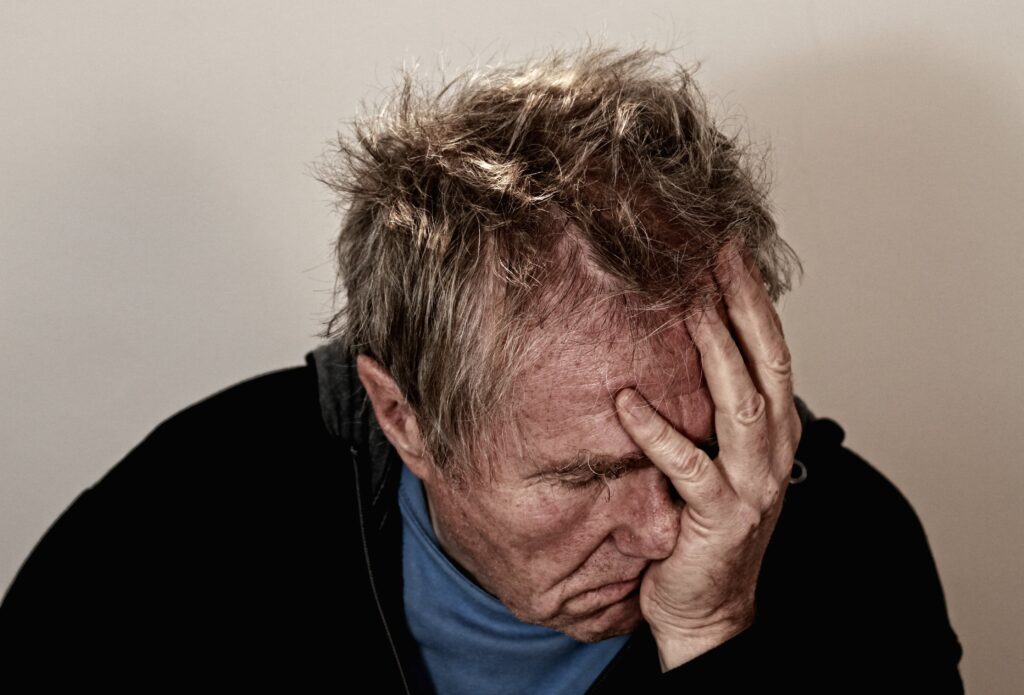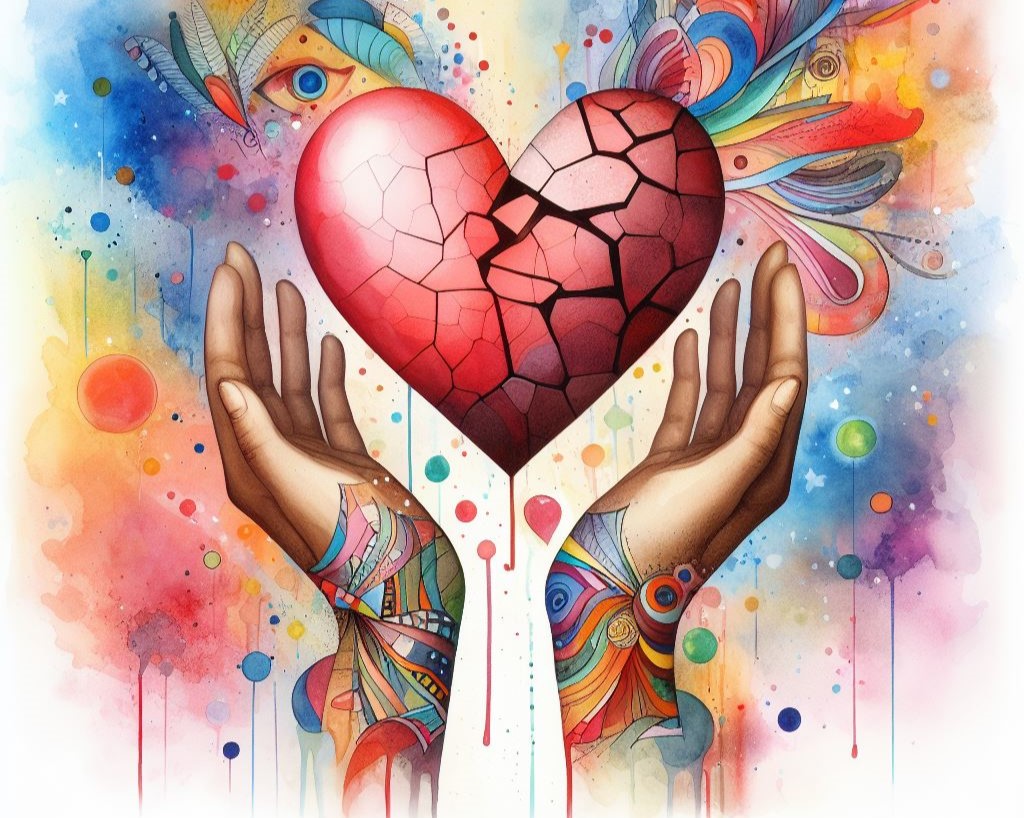Your feelings add flavor to the human experience, but it’s certainly not all sunshine and rainbows. Sometimes you’ll hurt. Life will suck, and there’s absolutely nothing you can do about it, besides experience it.
In today’s society, we’re conditioned to avoid pain. We’re either told to suck it up, or we’re given something to fix it.
Our society treats emotional pain as the enemy when it’s a quintessential part of the human experience. Emotional pain might suck, and sometimes it’s going to feel like you’re being dragged through gravel, but as long as you learn how to manage it and heal it, the pain will pass.
In this article I’m going to share some ways to manage emotional pain, to prevent it from getting out of control.
What is emotional pain?

Emotional pain refers to emotions that cause suffering or misery – Induced by an emotional wound or trauma.
Each emotion has a vibration, ranging from heavenly to hellish. Heartbreak is generally considered to be more painful than anger, but anger is still a form of emotional pain as it makes you feel miserable.
Emotional pain is unpleasant to experience no doubt, but it’s not necessarily a bad thing. We’re going to hurt sometimes because our world is a turbulent place. That’s why it’s important to learn how to manage your emotional pain.
To understand vibration and its association with emotional well-being, read the article below:
The function of emotional pain
Emotional pain is like a distress beacon. The function of emotional pain is to indicate that something is out of balance with your emotional body – And needs to be tended to.
If we never experienced emotional pain, we would never learn. We would continue making the same mistakes because there would be no repercussions. Therefore, emotional pain doesn’t only indicate an emotional wound – It’s a learning mechanism.
Emotional pain becomes emotional baggage when it isn’t healed. You can learn more about emotional baggage, and how to let it go in the article below:
Worst forms of emotional pain
There are many different types of emotional pain, and it can be caused by many situations. Experiencing emotional pain is a universal human experience, yet every form of emotional pain is unique.
Imagine each emotion as a spectrum. Depending on the severity of the event that caused the painful emotion, the feeling can range from being a slight sting that will come and go, to a deep trauma you may carry for many years.
Here are some of forms of emotional pain that are considered to cause the most suffering.
- Grief: Nothing can quite parallel the feeling of losing someone close to you, and knowing that person you love is gone
- Heartbreak: Undoubtedly, heartbreak can be a torturous experience, and it can take a long time to heal
- Betrayal: Feeling betrayed by someone you trust can lead to intense emotional distress as it shatters the foundation of trust
- Guilt: Guilt is considered to be one of the lowest-vibrational emotions, and it can make you feel like absolute crap
- Shame: Shame is also considered to be one of the lowest-vibrational emotions, and has a huge impact on your confidence and self-esteem
- Resentment: Resentment can be a particularly painful emotion that can be very difficult to heal
- Regret: Regret can have long-lasting implications, and feels like a wet blanket that can be difficult to heal
- Hatred: Hatred, with similarities to resentment is an extremely painful emotion that serves nobody
What are some signs of emotional pain?
Everyone experiences emotional pain differently, as emotional pain manifests in different ways. Here are some general signs of emotional pain.
- Agitation and moodiness
- Distress and worry
- Feelings of being overwhelmed, and the fear of not coping
- Consistent negative thoughts and feelings
- Feels of exhaustion and burning out
- Lack of joy in the things that normally provide joy
- Lack of energy and motivation
- general discomfort and dissatisfaction with life or oneself
- Inescapable feelings of dread, hopelessness, anguish, and anxiety
- Inability to let go of the past
Managing emotional pain vs healing emotional pain

To understand emotional pain to a deeper extent, I first need to iron out some terminology.
- Managing emotional pain refers to mitigating it, but not necessarily healing it. The wound is still open
- Coping with emotional pain refers to dealing with severe emotional pain when it’s getting out of control
- Healing emotional pain refers to closing the wound so the emotional pain no longer exists
Managing emotional pain doesn’t necessarily mean you’re healing it. It just means you’re mitigating it.
Healing emotional pain occurs from digging into it, processing it, and discarding it. There can be a lot of helpful strategies to manage emotional pain, but healing emotional pain generally takes time, and may require more elaborate activities such as therapy, ceremonies, and holistic and spiritual practices.
Often, emotional pain lingers because you don’t confront it. While you deny what you’re feeling, you’re sabotaging the process of healing. It’s okay to hurt. Hurting can be healthy in fact, it shows that you’re human!
A big part of life is to experience the negative side of it. Without contrast, you can’t grow and evolve as a person.
Do medications help to manage emotional pain?
Although some medications can be helpful in certain situations, I would not take medication to manage emotional pain if it can be avoided.
Understand that emotional pain cannot be ‘fixed’. It needs to be healed, and medications just numb the pain. As I’ve mentioned, pain is a signal that something needs healing. It’s there to help you grow as a person and become happier, healthier, and wiser.
If you’re taking medication to numb your emotional pain, you are not healing it, and it’s likely to cause more disintegration of your emotional body.
The truth is we’ve become so conditioned by an instant gratification culture, where the quickest, easiest option reigns supreme. Your emotional pain is not your enemy. It’s a messenger of important insights and wisdom that can’t be discovered any other way.
In a way, drugs just shelter you from your problems but don’t solve them. It’s a temporary escape. Emotional pain will not permanently go away without addressing it, doing the inner work, and making the appropriate life changes.
To understand why escaping your pain is a bad idea, read the article below about my story about escapism.
Strategies to manage your emotional pain

Get out in nature
Spending time in nature helps you declutter the mind while reconnecting to a place of calm. If you are struggling, it’s important to get out in nature often and escape the hustle and bustle of the chaotic urban battlefield.
Whenever I’m battling my demons, I get out in nature as frequently as possible – As nature is incredibly soothing. When out in the elements, stress melts right off my shoulders.
Go for walks in a park or hike through the wilderness. Sit by a lake and you’ll notice the constant clunking of your mind slowing to a ticker. Don’t listen to music or engage your phone while you’re in nature, just be present with your thoughts and emotions.
Nature has a profound impact on your emotional state. That’s why more cities are acknowledging the importance of green space, and mustering up the initiative to implement more into the modern human habitat.
Stop trying to escape it!
Nonresistance is an important philosophy when it comes to managing emotional pain. As resistance is a key component in suffering, resisting your pain compounds your suffering.
Therefore, don’t bottle up your pain because this will make it worse in the long run. You should surrender to your emotional pain and let yourself feel it fully. You need to let your pain pass through you without trying to defer it.
When you build the habit of allowing emotions to pass through instead of bottling them up, you will start to feel better every time you do.
To learn more about the philosophy of nonresistance and why it’s a crucial element in managing emotional health, visit the link below:
Be present
Mindfulness is key in managing emotional pain. Emotional pain is often created through being fixed to the future or bound to the past. When you’re here in the now, you realize… You’re okay.
Emotions such as guilt, shame, and resentment stem from the past. Emotions such as stress, worry, and anxiety come from the future. When you are present and let yourself just be, nothing hurts you.
The catch is that it’s difficult to be present, especially in our rapid and stimulating lifestyles. You need to practice mindfulness and enjoy the present moment as much as you can. The more present you become, the more your pain subsides.
Here’s a resource to help you get more into the now:
Let it all out
Energies are stored in your body, so it’s important to let them out. You can do this by expressing yourself emotionally and moving the energy through motion.
If you feel sad, cry. If you feel angry, vent. Get into the habit of opening the bottle of emotions by being calibrated with the way you’re feeling. The more you express yourself, the better you’re going to feel.
Here is a technique to help you release those pent emotions to manage your emotional pain.
Indulge in therapeutic hobbies
Therapeutic hobbies are great for relieving emotional pain. Hobbies that get you out of your mind and into your body temporarily subside your emotional pain, because that pain is no longer the focus of your attention.
When you’re feeling some painful emotions, try hobbies such as:
- Yoga
- Painting
- Hiking
- Swimming
- Sport
- Reading
Particular hobbies that don’t require a lot of thinking and generally have repetitive actions become a sort of mantra. They help you enter a present space which is why they can be so helpful.
Write
Writing is a good way to translate your emotions into words and process your pain. Writing is often my go-to when I’m dealing with something painful, because it’s an avenue to express myself.
Some of the content on this website has been a way to dump emotions and untangle my thoughts about certain topics. Especially when I get engrossed in writing and enter a state of flow, I completely forget about the pain I’m experiencing.
Whether you want to journal or creatively write, it doesn’t matter. Start writing your emotions down, and see if it helps you manage them.
Meditate regularly
Meditation is especially effective for processing emotional pain. You learn how to listen to your emotions and feel them via meditation – And this is what moves the needle with healing.
If you are experiencing anything painful, regular meditation can help manage and heal those emotions.
Go into the pain and explore it by meditating, and you’ll discover the pain subsides after a while.
Make changes to your lifestyle
Emotional pain can compound when you feel stuck in the same situation. Change things up in your life to clear the energy and create some movement.
If you’re always in the same places, doing the same things, it’s going to be harder to get out of your headspace. So change things up and refresh your life. You will be filled with new stimuli, experiences, and opportunities.
If you have wanted to learn an instrument, take up surfing, or start doing exercise, now is the time to make lifestyle changes that make you happy. Do something new to give redirect your focus.
When your emotional pain becomes too much

Sometimes, emotional pain can become too much to bear. You try your best, but the sting of failure can debilitate you. The shame of making some fatal mistake can haunt you for a very long time. After a while. it can become too much.
When you feel like you’re falling apart and you’re not sure how to manage your emotional pain, it may be necessary to seek support from someone who is trained to guide people through their darkest nights.
Otherwise, if you’re struggling to manage your emotional pain because it has built up to a level of dysfunction, here are some coping strategies that might help you.

